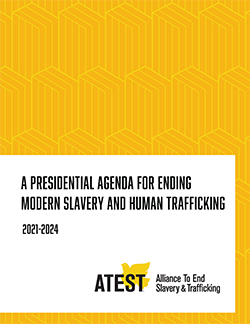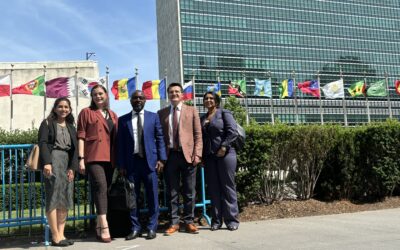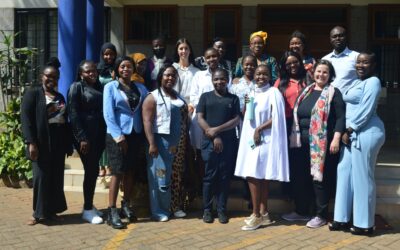The Alliance to End Slavery and Trafficking (ATEST) stressed the need for a whole-of-government approach to combat human trafficking inside the U.S. and around the world in comprehensive recommendations to the incoming administration of President-elect Joe Biden. ATEST’s 60-page memorandum was published today and is being sent to the Biden transition team.
“A Presidential Agenda for Ending Modern Slavery and Human Trafficking” includes specific action steps for the White House, the Departments of Labor, Health and Human Services, State, Treasury, Housing and Urban Development, Education, Justice, and Homeland Security, and the U.S. Agency for International Development.
“The Administration of Joseph R. Biden, Jr. and Kamala D. Harris has the opportunity to spearhead a major turning point in the counter-trafficking in persons movement at a critical moment in the United States, twenty years after the passage of the first comprehensive federal law on human trafficking,” the ATEST report notes.
“The COVID-19 pandemic highlights the cracks we knew existed in our social safety net, including inequity, racism, weak protections for workers, rampant homelessness and housing insecurity, inequitable access to resources and healthcare, gender-based violence, threats to LGBTQ+ rights, poverty, system-involved youth, and a broken immigration system. Human trafficking lies at the intersection of all of these issues and we cannot address trafficking without reckoning with these problems. The members of ATEST implore this Administration to adapt the U.S. Government C-TIP approach to prioritize prevention and address the root causes of trafficking and forced labor,” the report notes.
See the full Presidential Agenda recommendations here.
In stressing the need for greater balance among the government’s 3P paradigm of prevention, prosecution and protection, ATEST noted that “big, bold investments of resources in prevention efforts that address trafficking from a human rights-based approach is the only path forward.”
Free the Slaves serves as co-chair and secretariat of ATEST.




